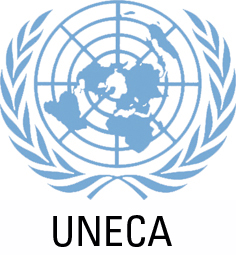Focal point
Location
P.O. Box 3001
Addis Ababa, Ethiopia
Established by the Economic and Social Council (ECOSOC) of the United Nations (UN) in 1958 as one of the UN's five regional commissions, ECA's mandate is to promote the economic and social development of its member States, foster intra-regional integration, and promote international cooperation for Africa's development.
Made up of 54 member States, and playing a dual role as a regional arm of the UN and as a key component of the African institutional landscape, ECA is well positioned to make unique contributions to address the Continent’s development challenges.
ECA’s thematic areas of focus are as follows:
- Macroeconomic Policy
- Regional Integration and Trade
- Social Development
- Natural Resources
- Innovation and Technology
- Gender
- Governance
Members:
Resources
Displaying 481 - 485 of 872Report on measures taken by African countries to reduce post-harvest food losses: Executive summary
The importance of post-harvest food losses in developing countries including Africa was given the right consideration by the seventh special session of the United Nations General Assembly held in 1975. The Assembly adopted resolution 3362 (S-VII) which, inter alia, called for drastic reduction of post harvest food losses and recommended that the goal of 50 per cent reduction;be attained by 1985.
Report on measures taken by African countries to reduce post-harvest food losses: Executive summary
The importance of post-harvest food losses in developing countries including Africa was given the right consideration by the seventh special session of the United Nations General Assembly held in 1975. The Assembly adopted resolution 3362 (S-VII) which, inter alia, called for drastic reduction of post harvest food losses and recommended that the goal of 50 per cent reduction;be attained by 1985.
Report on land use policies and farming systems: the case of Somalia and Sudan
The recent FAO in-depth study on agricultural and food problems in Africa concluded that even the present inadequate food supply situation is unsustainable. Unless major policy decisions are taken and implemented to resolve the food production crisis and reduce the rate of population growth, the trends of the past 25 years will continue and the food supply situation will continue to deteriorate during the next 25 years. Famine of the magnitude experienced during the 1983-1934 drought could become a regular feature even in period of more average rainfall.
Rapport sur les politiques du sol et sur les systèmes agricoles en Somalie et au Soudan
Dans son budget programme pour la période biennale 1986-1987 qui a été entérine par la onzième réunion do la Conférence des ministres tenue à Addis-Abeba en mai 1985 et ultérieurement approuve par la quarantième session de l'Assemblée générale des Nations Unie. Le présent rapport, est un résume des principales questions soulèves lors du séminaire et des mesures pratiques envisagées pour améliorer les moyens des pays dans le domaine de la commercialisation agricole pour ce qui est des arrangements sous-régionaux en matière de CTPD.
Report on land use policies and farming systems: the case of Somalia and Sudan
The recent FAO in-depth study on agricultural and food problems in Africa concluded that even the present inadequate food supply situation is unsustainable. Unless major policy decisions are taken and implemented to resolve the food production crisis and reduce the rate of population growth, the trends of the past 25 years will continue and the food supply situation will continue to deteriorate during the next 25 years. Famine of the magnitude experienced during the 1983-1934 drought could become a regular feature even in period of more average rainfall.


